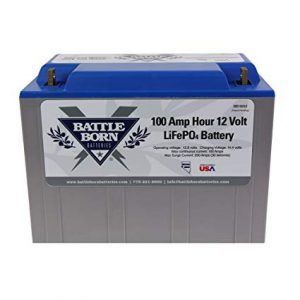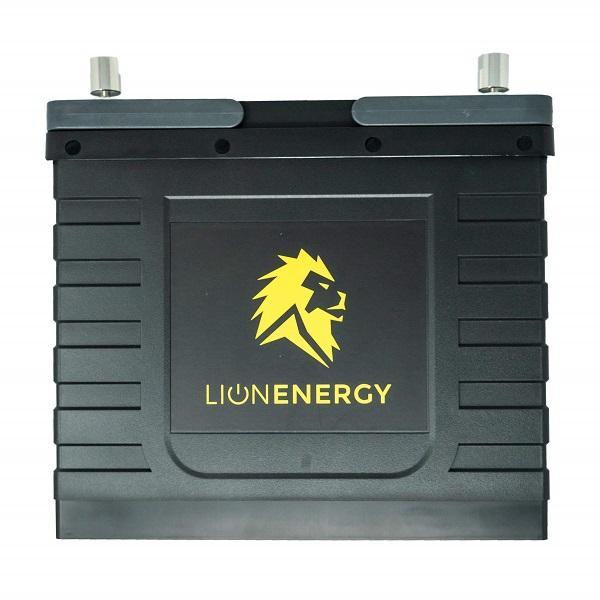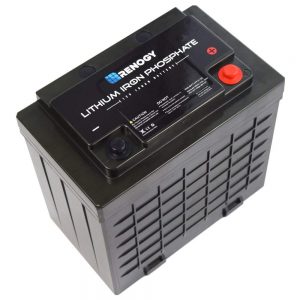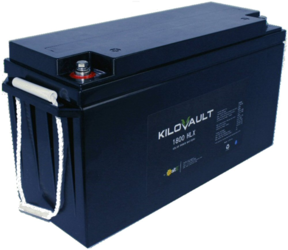Batteries are the heart of every RV’s electrical system. Without a battery, you’d have to be plugged into shore power all the time to have any electricity in your rig at all. Batteries store power so it can be used later, and the larger the capacity of your battery bank, the better your RV’ing experience will be. There’s a large variety of factors to consider when buying batteries, and they are often the most expensive part of any electrical upgrade.
Type of Battery
There’s lots of different types of batteries: Flooded Lead Acid (FLA), Absorbent Glass Mat (AGM), Gel, Lithium Iron Phosphate (LiFeP04), Lithium Ion, plus others. Each has their advantages and disadvantages.
For all RV uses, I highly recommend LiFeP04 batteries. There are a whole bunch of advantages and only some minor disadvantages. These are the batteries that I run in my rig and I believe make the most sense for RVers.
Reputation
Within the realm of Lithium batteries, there are a whole bunch of different suppliers configurations. With all of these options, which do you choose? Reputation is a strong selling point for many people when buying batteries. If they’re well known, and your friends have them and speak well of them, then pulling the trigger and plunking down a couple grand on some fancy new batteries is a lot less stressful.
Reliability
Depending on the battery chemistry and potential build-in electronics, how reliable is the battery? Will it fail within 2 years? Or will it outlast your RV? Even within the LiFeP04 battery type, there’s different ways the cells can be combined and managed with Battery Management Systems (BMS) to extend the life of the battery and protect it from harm.
Cost
Good batteries cost a lot of money. There’s no getting around that. Your battery system may be the single most expensive component in your rig. It certainly is in mine!
Cost can vary, depending on reputation and reliability, and of course, battery chemistry. Since I highly recommend LiFeP04 batteries for all of my clients, I’m going to focus on those batteries below, but if you’re highly price-sensitive and willing to accept much shorter battery life spans, FLA or AGM batteries might make sense for you.
Availability
Can you walk into Wal-Mart and pick up the batteries you want? Or are they shipped directly from China and take 2-3 weeks to arrive? This is a factor to consider, but should be low on your list of priorities. If the right batteries for you come from China and take a couple weeks to arrive, I highly recommend waiting for them. A couple week wait, while inconvenient, can be well worth it in the long run.
Warranty
Related to reliability, what kind of warranty come with your batteries? Most FLA and AGM batteries have a 2 or maybe 3-year warranty. They’re just not designed to last much longer than that. Most Lithium battery packs have a 5 or 10 year warranty because they can easily last that long. If you take care of them, they’ll generally outlast your rig. Warranty, combined with reliability and reputation can make an expensive battery seem a lot less risky than an inexpensive battery.
Battle Born
Reputation: Excellent
Reliability: High
Cost: High ($949)
$/kWh: $791
Availability: Easy
Link: Continuous Resources
Warranty: 10 years
Battle Born batteries are the default go-to solution for RVers looking to upgrade to Lithium. I can’t count the number of times I’ve seen these batteries being installed. With a BMS that covers all the requirements of LiFeP04 batteries, these are dead-simple to install and easy to recommend for everyone. The only negative is the price point as they come in at a higher cost per kWh than most of their competitors.
Lion Energy
Reputation: Good
Reliability: High
Cost: High ($899)
$/kWh: $669
Availability: Easy
Link: Continuous Resources
Warranty: Limited Lifetime
Slightly lower price than the BattleBorns and from a (now) reputable brand, these are a great option.
Note: Lion Energy made a terrible marketing mistake a few years ago when they over-promised and under-delivered on their rated capacity. This has been fixed with the 1300-series.
Ruixu
Reputation: DO NOT BUY
Reliability: Unknown
Cost: Low ($630)
$/kWh: $525
Availability: Difficult
Link: Amazon, Ruixu
Warranty: 3 years full warranty
A recent tear-down of the Ruixu battery has shown poor wiring, poor quality control, and bad design. With their lack of low (or even proper high) temperature cutoffs and the shoddy internals, do not buy this battery.
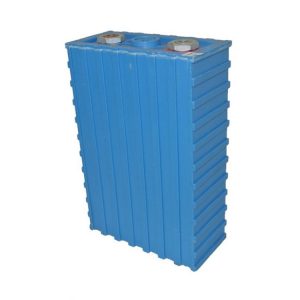
Raw Lithium Cells
Reputation: Good
Reliability: Excellent, if installed properly
Cost: Low
$/kWh: as low as $328
Availability: Difficult
Link: AliExpress
Warranty: none
All of the battery packs above contain these kinds of LiFeP04 cells, wrapped in a case of some kind and have a BMS that handles balancing the cells and high/low voltage cutoff and optionally high/low temperature cutoff. These raw cells have none of those features and you’re left to build in what you need or want as you see fit. This is how I built my personal system, and it’s worked fantastically! After more than a one year of full-time boondocking in all possible weather conditions, they’ve help up great. With raw cells, you can also easily build out 24 and 48 volt systems, which have some substantial benefits. When building without a BMS, you’d want to either add one, or be mindful of your batteries and simply take care of them. Although I don’t recommend these batteries for beginners or people that don’t pay much attention to their battery bank, if built out into a fully-protected system, they can be a great option.
Apex AGM battery
Reputation: Average
Reliability: Average
Cost: Very Low ($280)
$/kWh: $280
Availability: Good
Warranty: 1 year
Link: ApexBattery
Important Note: HEAVY
If you cannot afford a lithium battery bank and are willing to accept the flaws of lead-acid batteries, then this could be an option for you. Lead-acid batteries weigh a lot more than their lithium counterparts and don’t last nearly as long.
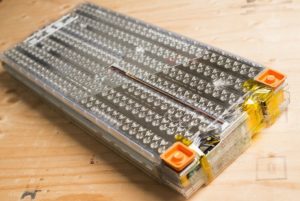
Tesla Battery
Reputation: Good
Reliability: Excellent
Cost: Low ($1300)
$/kWh: $325
Availability: Good
Warranty: none
Link: search eBay
Important Note: 24 or 48 volt systems only
Tesla batteries can be a wonderfully inexpensive option for building out 24-volt systems. These batteries come out of Tesla vehicles that have sustained enough damage that they’re being parted out. Tesla batteries are Lithium Ion based chemistry, but more importantly, aren’t exactly standard voltage. They run on the low side of 24 volts, so standard inverters may not be able to use the full capacity of the battery. Still, for how cheap they are per kWh, it’s no wonder some people choose these!
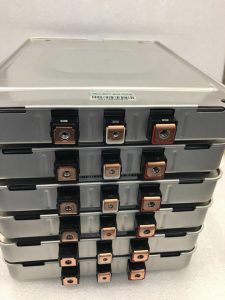
Nissan Leaf Battery
Reputation: Unknown
Reliability: Unknown
Cost: Extremely Low
$/kWh: ~$250
Availability: Medium
Warranty: none
Link: search eBay
Important Note: 24 or 48 volt systems only
Nissan Leaf batteries offer the lowest cost per kWh of any lithium system I’ve ever seen. I haven’t personally had the opportunity to experiment with these, but I’d love to someday. At a cost of approximately 1/3 that of BattleBorns, there’s some major potential here.
KiloVault
Reputation: Unknown
Reliability: Good
Cost: High ($1,375)
$/kWh: ~$763
Availability: Good
Warranty: 7.5 years
Link: alteEstore
With all the features of the BattleBorns, and a slightly larger size and capacity, these are a great choice. If you want to have a single battery and be able to run the microwave, this battery can do it. With a sustained discharge current of 150 amps, (50% higher than BattleBorn), and the ability to push 200 amps for up to 30 minutes before going into protection mode, this will run your high-power appliance with ease. For that sweet spot where BattleBorn doesn’t quite have the continuous-current capabilities without buying two of them, this single battery will fit most peoples needs.
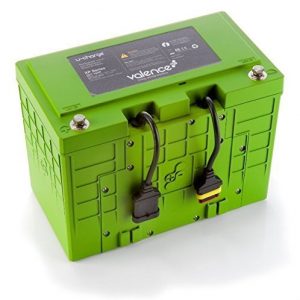
Valence
Reputation: Unknown
Reliability: Unknown
Cost: Extremely Low (~$300)
$/kWh: ~$181
Availability: Good
Warranty: None – Used
Link: Search eBay
Valence batteries are an interesting choice. They have internal BMS’s that will balance the cells when in series, and they will monitor temperature, voltage, and amperage. They will not cut off for high or low temperature and information is not available on whether they will cut off for high amperage events. If you’re willing to take care of your batteries, this is a very inexpensive way to get Lithium in your rig.
